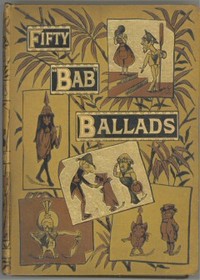The Air of the “Whistling Oyster”
byThe Air of the “Whistling Oyster” begins with an absurdly mismatched couple: a seventy-three-year-old prophet and his strikingly young wife, barely eighteen. Their union, already strange, became even more bizarre with the arrival of their son—a boy born not into childhood, but seemingly straight into cynical adulthood. From the moment he emerged, he carried himself with a strange gravity, casting off rattles and bibs for spectacles and the sneer of someone weary of life. His first words were not babbled nonsense but cutting critiques of nursery rhymes, turning every parental attempt at bonding into a philosophical debate. The nursemaid resigned in defeat, unable to lull him with songs or toys, while the mother looked on, bewildered by her own child’s lack of innocence. Even the prophet, wise in many things, found himself stumped, watching his progeny sip from imaginary port glasses and dismiss fairy tales as juvenile nonsense.
The young cad’s behavior spiraled into public curiosity. He insisted on wearing coats too large for him and walking with a cane, creating the illusion of a child possessed by a cranky elder. At social gatherings, he debated the stock market with grown men and frowned upon children who enjoyed hide-and-seek. His disdain for other children’s behavior branded him a pariah among the playground set, leaving him to sulk alone with his pipe—real or imagined—and lofty thoughts. Adults, too, found him off-putting; there was something unsettling about a toddler reciting dry economic theory or quoting outdated Parliamentary debates. The boy’s conversations baffled even the cleverest minds, as he rejected all things childish in favor of politics, cigars, and port. In time, neighbors speculated wildly—some whispering of curses, others of reincarnation. Either way, the child was viewed not as a miracle but as a walking enigma, wrapped in corduroy and contempt.
As the years passed, the prophet aged gently into the background, unable to hold relevance in his son’s strange, self-important world. The mother, too, retreated into quietude, overwhelmed by the boy’s constant judgment and weary demeanor. The child would sit at the fireside, legs crossed like a club-room regular, criticizing literature and scoffing at youth’s frivolities. He regarded his father’s career with sarcasm, suggesting the prophet had wasted his life predicting futures instead of investing in railways. Even family portraits became a source of mockery—he’d refer to his baby photos as “embarrassing relics of bourgeois nostalgia.” There seemed no joy in him, only a tireless pursuit of adult respect. Yet no one could grant him that respect, for in the end, he was still a boy—diminutive in stature, high-pitched in voice, and profoundly out of place in both cradle and club.
Despite the comic exaggeration, the tale pokes fun at the discomfort society feels when norms are disrupted—especially those concerning age and behavior. In its satire, the story captures the awkwardness of growing up too soon, whether by circumstance or by disposition. It reminds readers that youth, when robbed of its folly, leaves behind a hollow shell of forced seriousness. The humor stems not only from the boy’s absurd maturity but from how others around him are paralyzed by it. Parenting becomes impossible when the child resents being treated like one. Authority figures falter when their charge knows more—or at least pretends to. The absurdity is doubled by the setting: a world expecting nursery rhymes but receiving financial forecasts instead. Within this contrast lies the core of the fable: childhood is not merely a phase to be endured or rushed through—it is a necessary and rich part of life.
Moreover, the story draws subtle attention to parental expectations and their unintended consequences. The prophet and his young bride, likely unprepared for genuine parenting, perhaps imposed their own ideals onto their child, who then reflected those ideals in grotesque overperformance. The satire illustrates how attempting to mold a child into adult likeness can result in losing the beauty of growing up altogether. It cautions against treating children like miniature adults, for doing so deprives them of the very essence of childhood: discovery, joy, mistakes, and innocence. Wrapped in humor and rhyme, the ballad leaves behind a lingering message beneath its laughter—that age, when forced, becomes parody, and life, when rushed, loses its rhythm.

